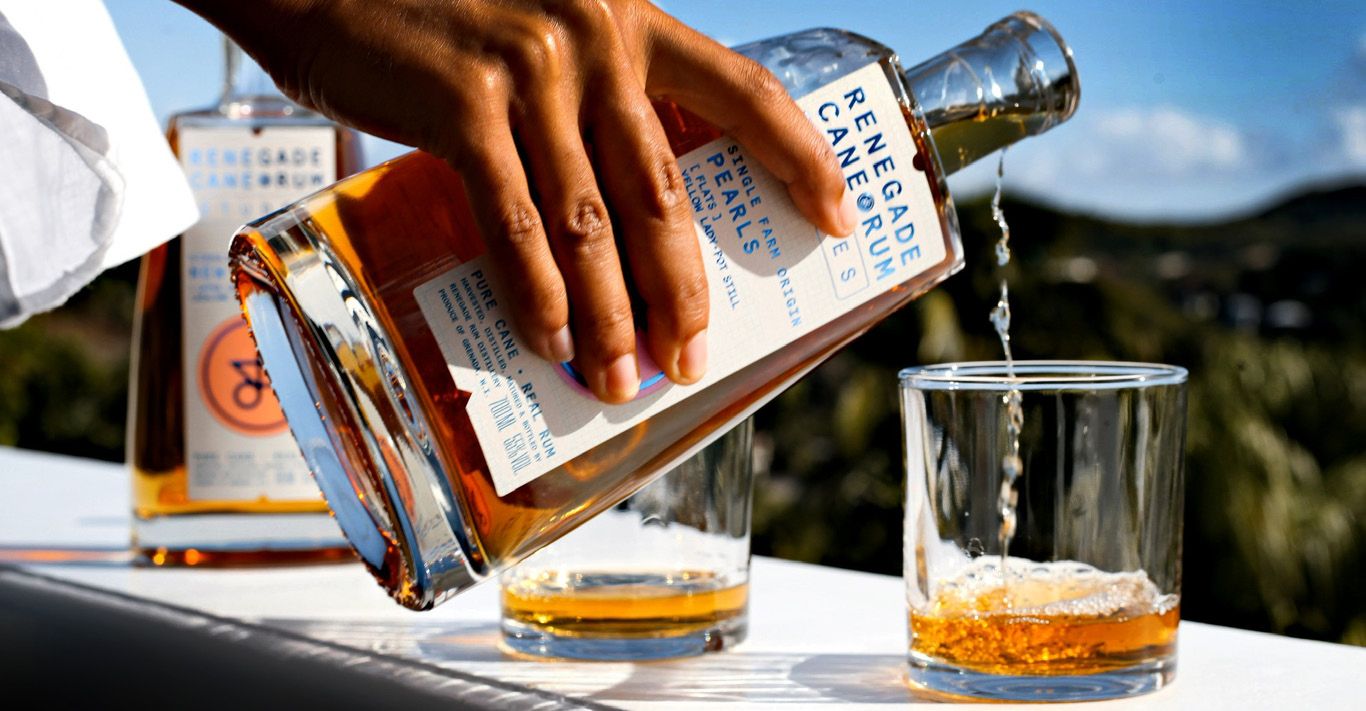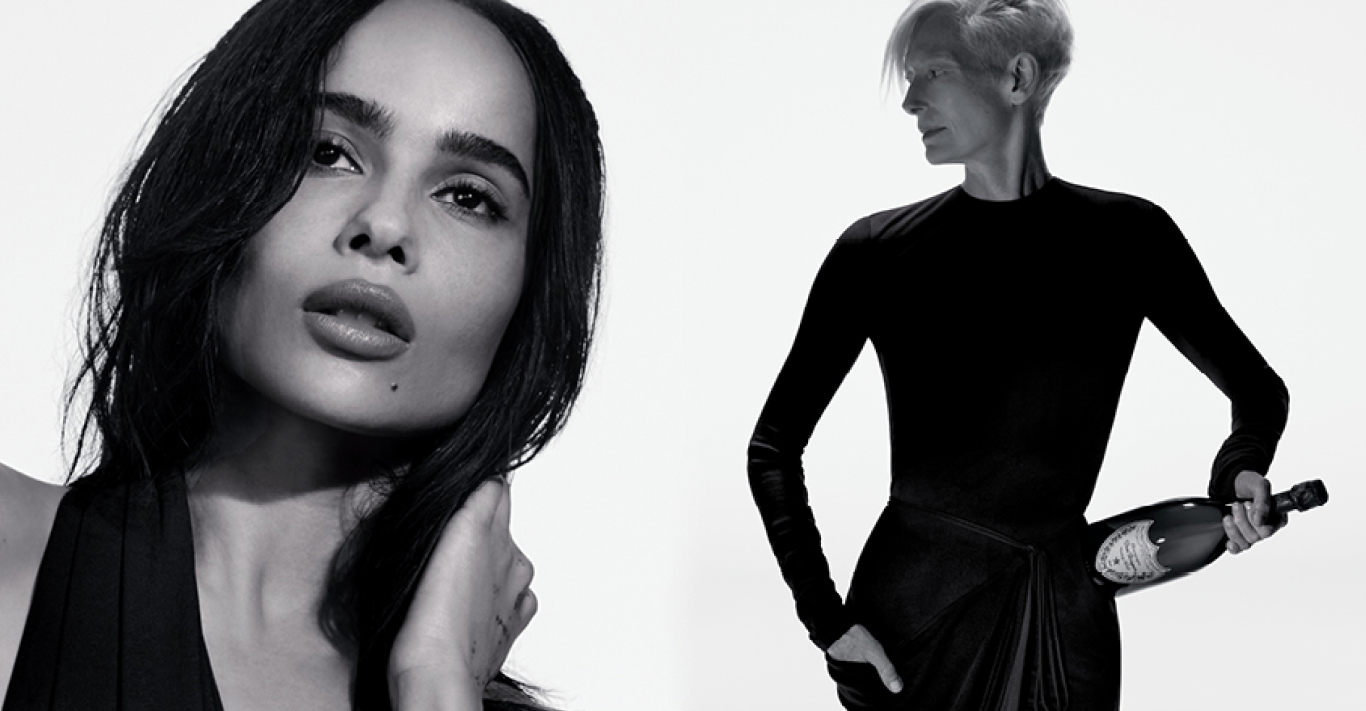WORDS
Chris Madigan
Having built an iron-clad reputation in whisky investment, Cask Trade is now offering liquid assets with a different flavour. Rum has seen recent global growth (especially at the high end) and is predicted to be worth $16.08b by 2028, 25 per cent more than in 2022. One attraction is the variety of styles available. Mark Reynier, the former wine merchant who revived the Bruichladdich distillery on Islay, before launching Waterford Irish whiskey, has taken his concept of terroir in spirits to Grenada. For Renegade Rum, he has not only built a new distillery, which began distilling in 2022, but has planted different cane varietals in soils, from volcanic to alluvial, across the island. Renegade Rum is distilled directly from cane juice (not molasses) from these individual plots of land.
Brummell spoke to Reynier over some samples of Renegade’s pre-cask and aged cane rums…
You are known for single-malt Scotch and Irish whiskey. So, what has drawn you to rum?
Before Bruichladdich, I used to bottle whiskies independently under the name Murray McDavid. When I became a distiller, I let that go, but I wanted to maintain some sort of independent bottling and rum offered interesting opportunities. You could buy barrels of 20-year-old rum made by distilleries that no longer existed, some crazy stuff. And so, we started Renegade “mark one”, the Renegade Bottling Company. But it was a flawed plan because, in the long run, there was even less stock of great old rum than old Scotch, and we shut that down in around 2008.
That clearly wasn’t the end of your journey into rum…
The next thought was, is there a Bruichladdich type opportunity – an old distillery, preferably with stock that I could buy. So I started what ended up being a 10-year peregrination through the Caribbean and Pacific. Just about everything I found was an absolute disaster: the mankiest places you’ve ever seen in your life, with dangerous setups, appalling hygiene, machinery installed 150 years ago and barely maintained since. So – call it arrogance, if you like, the same arrogance that took me from being a wine merchant to distilling whisky – I thought, surely to goodness, I can do this better. I am going to have to build a state-of-the-art distillery myself, using the technology and know-how from Bruichladdich and Waterford.
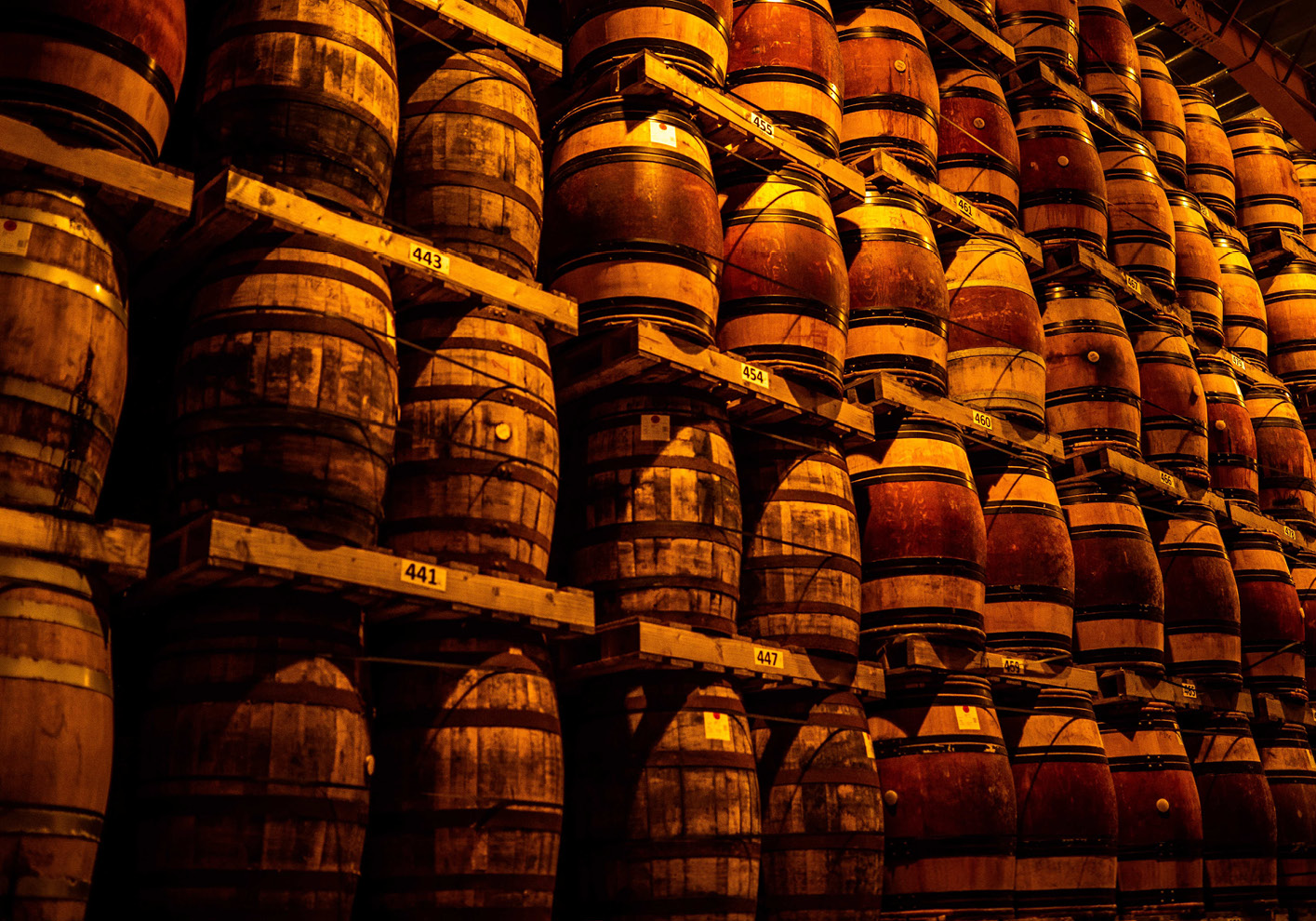
What made you end your peregrinations in Grenada?
A friend of my accountant has a holiday home on Grenada, and he suggested I take a look at the island, thinking it might be the right place. By the time the plane landed at Maurice Bishop airport, I was already convinced – I could see so much greenery. Just one little problem: none of it was sugar cane. For various reasons – political history, the devastating 2004 hurricane, prioritising tourism – agriculture has not been a focus. I think there was one working tractor on the island when I arrived. I tried to follow the same principle as in the Hebrides and in Ireland, go to farmers and say, ‘You grow the cane we need, and we’ll make it worth your while.’ But we were met with suspicion, and had to become farmers ourselves.
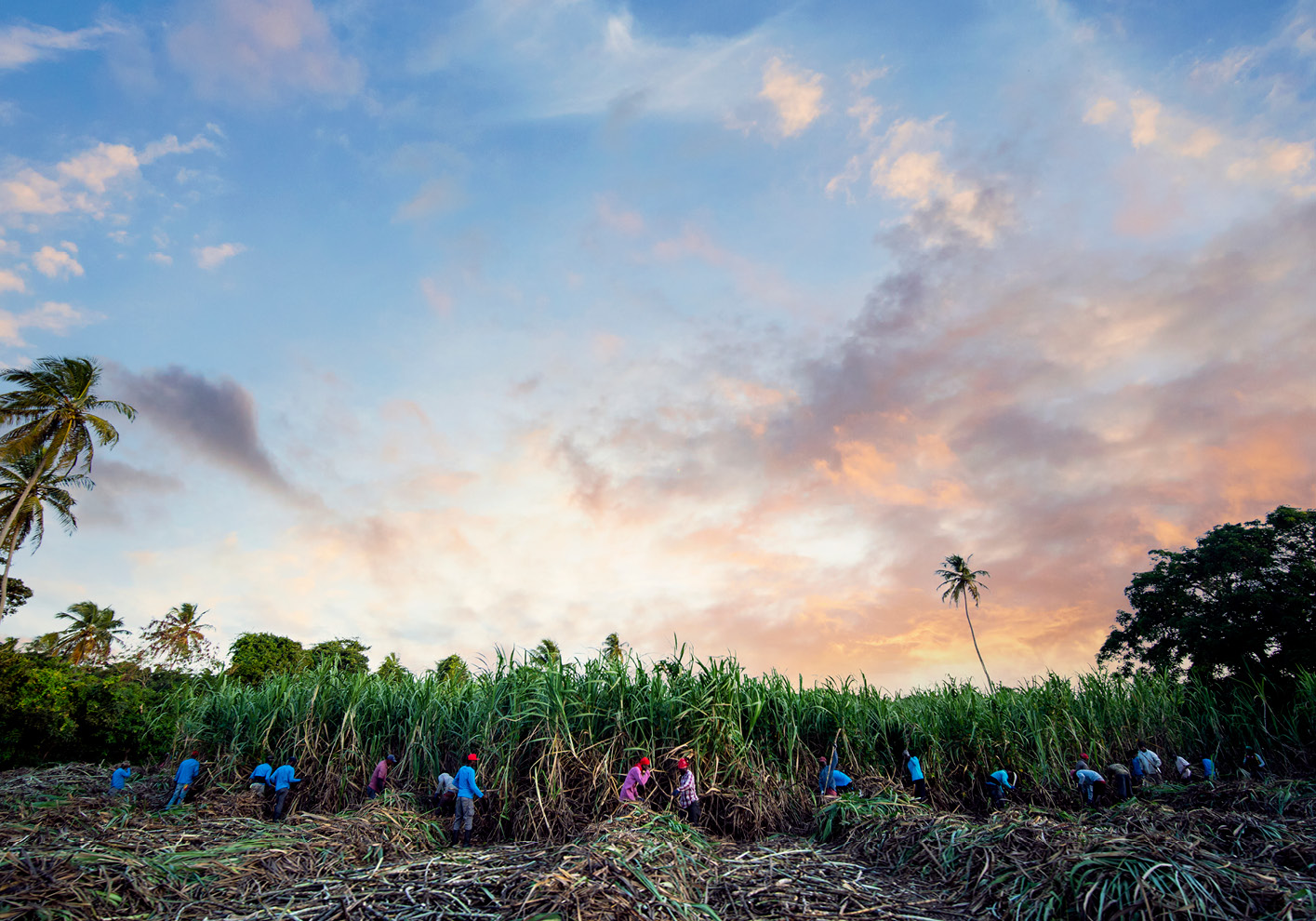
The principle of both Bruichladdich and Waterford is terroir – specific strains of barley grown locally in identifiably different soils, aspects, micro-climates etc. Are you applying that to rum too?
My principle comes from Burgundy and Bordeaux wines. If you grow vines on different terroirs, it gives you different nuances of flavour, and if you then assemble them in a cuvée, that’s when you can blow minds. I’m always seeking natural flavour – and I’ve felt that too many rums have a broad, generic flavour profile, especially when made from molasses, where there’s also a vagueness of provenance. Cane has shedloads of flavour, and you can manipulate it, or heighten it, by where you plant it.
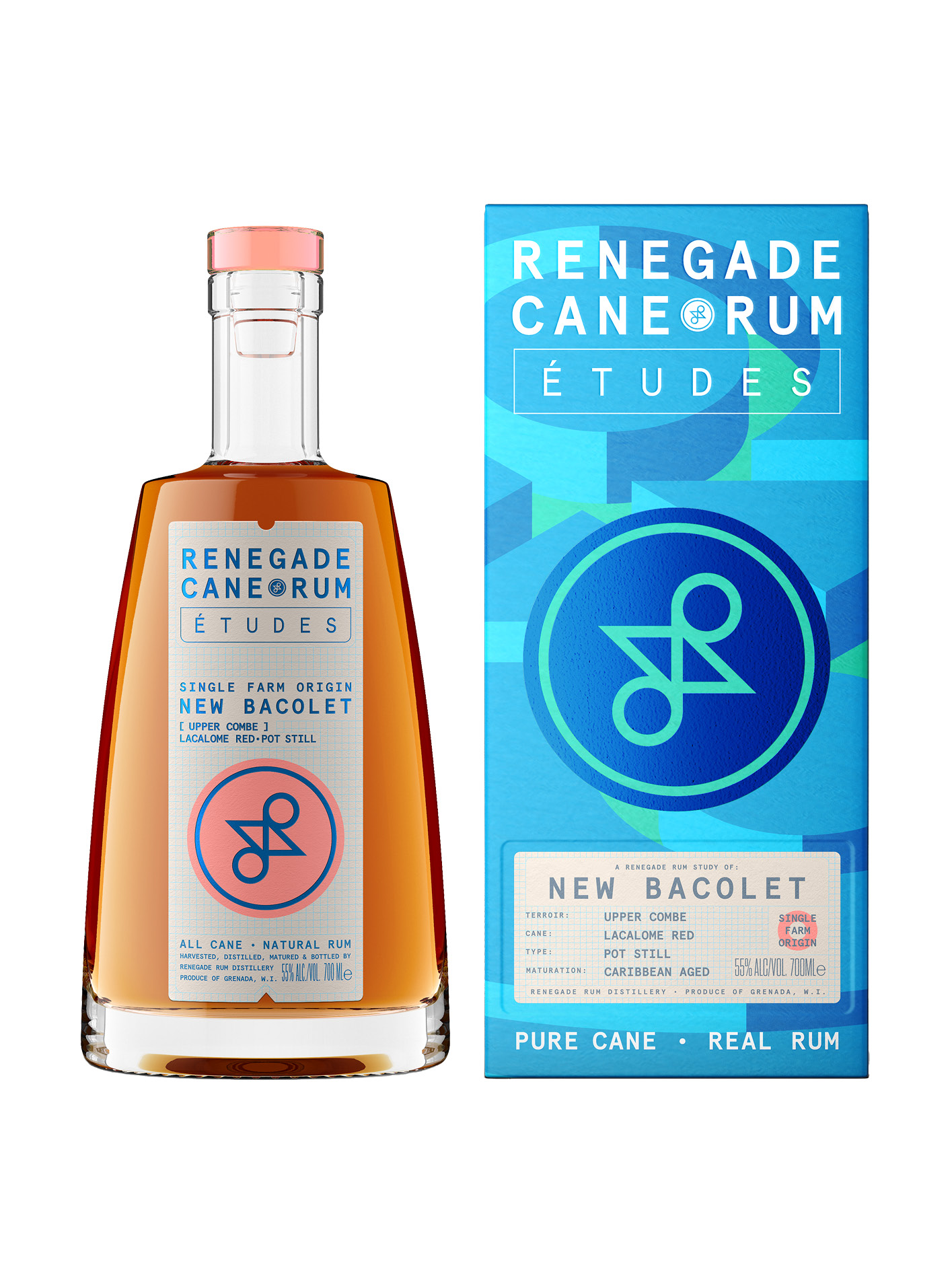
What have you found on Grenada, in terms of terroir differences?
All the way up the east coast, we’ve got different climates, temperature zones – we’ve got river valleys, mountainsides, volcanic crater lakes, water meadows. This is a volcanic island: a patchwork of sedimentary rock, volcanic deposits with eluvial on top and laterite strips. On Pearls estate, for example, you go from sand to iron to clay in 50 yards. Our Bacolat field is an amphitheatre on Goat Hill. At the top, it’s sun-parched, and most of the soil has been washed to the bottom. But the stress on the cane is advantageous. It creates a tight, mineralic, floral spirit. At the bottom, where it’s all verdant and green because all that eluvial has been washed down, it produces a rum that’s fatter and richer.
Cask Trade’s Colin Hampden-White, who is also an independent and highly respected drinks writer and broadcaster, says that one of the reasons the whisky cask specialist has decided to form a partnership with Renegade Rum is flexibility. ‘Renegade offers not only a choice of single-terroir casks or cuvées, but the ability to mature quickly in a tropical climate, or ship it to Ireland for a longer maturation. At Cask Trade, we sell to both investors and the trade. The latter can’t sit on stock for too long – they need the cashflow, so they need to bottle – and that works symbiotically with investors who can wait longer.’
Other factors are equally important, says Hampden-White: ‘One is the purity of the spirit, and the quality of wood that it goes into. But, above all, it’s a shared commitment to transparency. We’ve brought transparency to whisky investment, which has been pretty murky, and Renegade is bringing transparency to the world of rum.’
Once an investor has registered an interest, Cask Trade will help them select an unaged rum to mature in cask. Renegade Rum bottles pre-cask single-farm rums as well as its Études, which show the effect of barrel-ageing on those terroirs. The company will then manage the maturation and exit strategy to meet the investor’s goals.


